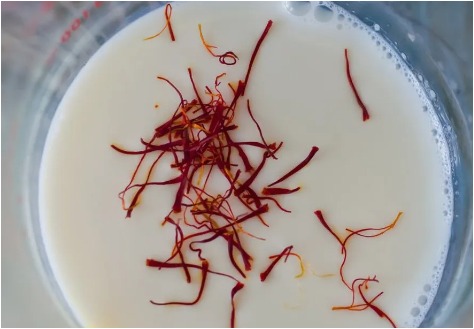
Yes, saffron (Kesar) is believed to have potential benefits for heart health. It contains several bioactive compounds, including crocin, crocetin, and safranal, which contribute to its medicinal properties. While research on saffron’s effects on heart health is still ongoing, some studies suggest that it may have positive effects on certain heart-related factors. However, it’s important to note that more extensive and conclusive research is needed to establish these benefits definitively.
Potential ways saffron may be beneficial for heart health:
- Antioxidant Properties: Saffron is rich in antioxidants, which help neutralize harmful free radicals in the body. Oxidative stress is linked to the development of heart disease, and the antioxidants in saffron may help protect the heart from such damage.
- Anti-Inflammatory Effects: Chronic inflammation is associated with cardiovascular diseases. Saffron’s anti-inflammatory properties may contribute to reducing inflammation in the blood vessels and heart tissues.
- Blood Pressure Regulation: Some studies have suggested that saffron may have a blood pressure-lowering effect. Managing blood pressure is crucial for heart health and reducing the risk of hypertension.
- Cholesterol Reduction: High cholesterol levels can lead to the buildup of plaque in the arteries, increasing the risk of heart disease. There is some evidence to suggest that saffron may help lower cholesterol levels, thus benefiting heart health.
- Improvement in Blood Lipid Profile: Saffron has been shown to positively impact lipid profiles by reducing LDL cholesterol (the “bad” cholesterol) and increasing HDL cholesterol (the “good” cholesterol).
While these potential benefits are promising, it’s important to exercise caution and not rely solely on saffron for heart health. Maintaining heart health requires a comprehensive approach that includes a balanced diet, regular physical activity, not smoking, managing stress, and seeking medical advice and treatment as needed.
If you have any existing heart conditions or concerns about your heart health, it’s crucial to consult with a healthcare professional before incorporating saffron or any supplement into your diet. They can provide personalized recommendations and ensure that saffron is safe and suitable for your specific health needs.
